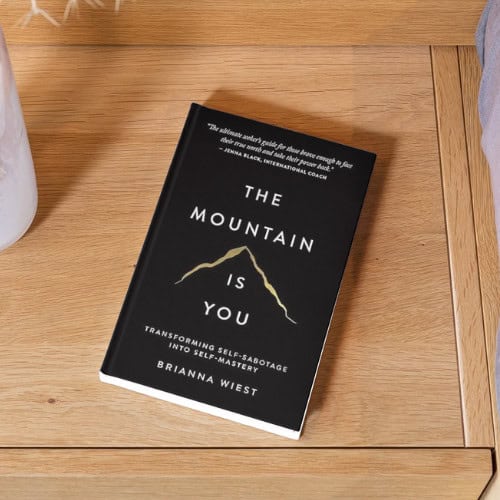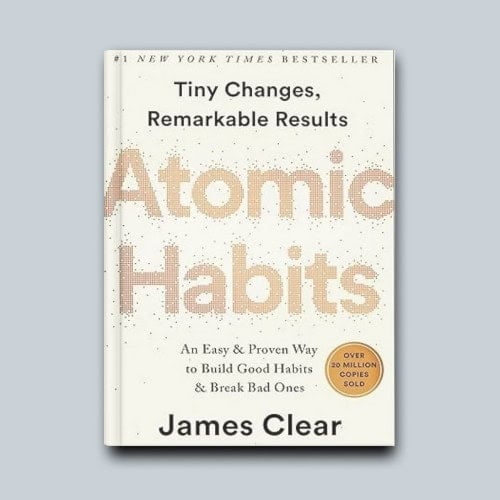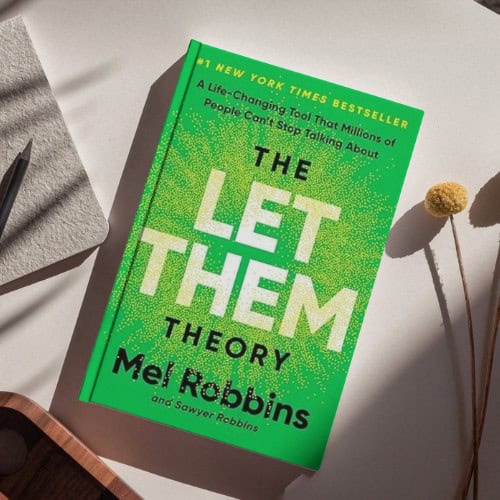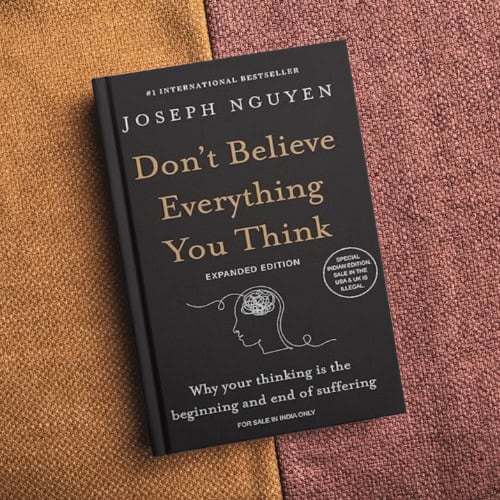Do you find yourself sabotaging your own success? In today’s world, personal growth is crucial for reaching your goals. Brianna Wiest’s insightful guide offers a new way to master yourself.
“The Mountain Is You” by Brianna Wiest is a deep dive into human behavior. It gives readers tools to beat their inner obstacles.
This review will show how Wiest’s work fits into the 2025 personal growth scene. It brings a new view on how to improve yourself.
Key Takeaways
- Understanding the concept of self-sabotage and its impact on personal growth.
- Exploring Brianna Wiest’s strategies for overcoming self-sabotaging behaviors.
- Discovering how “The Mountain Is You” can be a valuable resource for self-mastery.
- Learning how to apply Wiest’s insights to your own life for personal transformation.
- Gaining a deeper understanding of the importance of self-awareness in achieving success.
Unveiling “The Mountain Is You by Brianna Wiest”
‘The Mountain Is You’ by Brianna Wiest is a standout in personal development. It helps readers understand and move past self-limiting behaviors. This section will give an overview of the author and the book’s main idea.
Who is Brianna Wiest and Her Impact
Brianna Wiest is a well-known author in the self-help field. Her books, including ‘The Mountain Is You’, have made a big impact. They help readers fight self-sabotage.
Wiest’s writing is easy to understand yet deep. This makes her books some of the best self-help books Brianna Wiest has written.
The Book’s Core Premise and Promise
‘The Mountain Is You’ is all about overcoming self-sabotage. It teaches readers to change the subconscious patterns that stop them from growing. The book promises to lead readers on a path of self-discovery.
It offers practical ways to gain self-mastery. The table below outlines the book’s main idea and key points.
| Core Premise | Key Takeaways |
|---|---|
| Understanding and overcoming self-sabotage | Identifying subconscious patterns |
| Guiding readers toward self-mastery | Practical strategies for personal growth |
Understanding Self-Sabotage: The Central Theme
In ‘The Mountain Is You,’ Brianna Wiest explores self-sabotage. She helps readers understand and overcome their destructive patterns. Self-sabotage can affect many areas of life, holding back personal growth and success.
Defining Self-Sabotage According to Wiest
Wiest explains self-sabotage as actions that undermine our success and happiness. She says it’s often due to unconscious fears or unresolved emotional issues. According to Wiest, “Self-sabotage is a way to protect ourselves from feeling inadequate or unworthy, but it ultimately prevents us from achieving our true potential.” This shows how self-sabotage is linked to deeper emotional or psychological issues.
The Hidden Benefits of Self-Destructive Behaviors
Wiest points out that self-sabotage might seem all bad, but it can act as a coping mechanism. It offers a temporary escape or comfort from the fear of success or change.
Why We Cling to What Hurts Us
People often stick to self-destructive behaviors because they’re familiar. Wiest says, “the comfort of the known, even if it’s harmful, can be more appealing than the uncertainty of change.”
The Comfort of Familiar Pain
The pain or negative patterns we’re used to can feel comforting. It fits with our self-image or past experiences. As Wiest says, “We often prefer the certainty of our misery over the possibility of happiness, because happiness feels foreign and uncomfortable.”
Understanding these dynamics helps readers start to overcome self-sabotaging behaviors. They can move towards healing and personal growth.
The Mountain Metaphor: Climbing Toward Self-Mastery
Brianna Wiest’s ‘The Mountain Is You’ talks about an inner mountain. It shows the obstacles we face within ourselves, blocking our path to growth. This idea is key to understanding how to beat self-sabotage and reach self-mastery.
Unpacking the Symbolism of Inner Mountains
The mountain stands for the tough, personal challenges we all face on our self-improvement journey. It shows the inner walls that stop us from being our best. By tackling these inner barriers, we can start to overcome our self-destructive habits.
The Journey vs. The Destination in Personal Growth
Wiest says personal growth is more about the journey than the end goal. Climbing the mountain, with all its hurdles, is where we truly grow. This view matches the ideas in top personal growth books2025, which focus on the journey, not just the finish line. It helps us grow stronger and more focused on our personal growth, like in mindset shift books.
Key Insights on Emotional Intelligence and Healing
In ‘The Mountain Is You,’ Brianna Wiest explores the importance of emotional healing for lasting change. Emotional intelligence and healing are closely linked. They are key to personal growth and mastering oneself. By facing emotional wounds, people can start to change their lives.
Emotional Healing as a Foundation for Change
Emotional healing is a vital step towards personal growth. It means facing and dealing with emotions, not hiding them. Wiest points out that emotional healing is not about avoiding pain but about learning to navigate it for growth and strength. This journey helps people develop a stronger sense of self and boosts their emotional smarts.
Transforming Emotional Responses into Conscious Choices
Turning emotional responses into thoughtful choices is central to emotional intelligence. Wiest says becoming aware of our emotional triggers and patterns is the first step. This means knowing the difference between reacting and responding to emotions. By choosing to respond, not react, we can escape bad patterns and live a more rewarding life.
Breaking Destructive Patterns: Practical Strategies
Changing self-sabotaging habits is key to self-mastery. First, you need to know what these habits are and how they show up in your life.
Identifying Your Self-Sabotage Triggers and Patterns
Spotting the triggers and patterns of self-sabotage is essential for change. It means paying attention to your thoughts, feelings, and actions. Journaling and mindfulness practices can help you see these patterns and triggers.
Actionable Techniques for Pattern Interruption
After finding your self-sabotage triggers, it’s time to stop these patterns. You can use several techniques, like:
- Cognitive restructuring: Switching negative thoughts to positive ones.
- Emotional regulation: Controlling your emotions to guide your actions.
Daily Practices for Awareness
Meditation and mindfulness daily can boost your awareness of self-sabotaging behaviors. These practices help you understand yourself better, making it simpler to notice and challenge negative patterns.
Creating New Neural Pathways
By repeating new behaviors and thoughts, you create new neural pathways. This is called neuroplasticity and is key to lasting change.
| Technique | Description | Benefit |
|---|---|---|
| Cognitive Restructuring | Changing negative thought patterns | More positive outlook |
| Emotional Regulation | Managing emotions | Better decision-making |
| Mindfulness | Increasing awareness | Reduced self-sabotage |
The Psychology of Change and Resistance
Understanding personal growth and resistance is key to mastering yourself. Brianna Wiest’s “The Mountain Is You” shows that change is a part of life. Yet, our minds often fight it because of deep patterns and fears.
This fight against change comes from our love for comfort and what’s familiar. Yet, to grow and change, we must beat this resistance.
Why We Unconsciously Resist Personal Growth
We resist growth because of fear, past hurts, or the unease of change. Wiest says this resistance shows we’re ready for big growth.
- Fear of losing who we are or our sense of self
- Experiences that teach us to shy away from change
- The comfort zone, though limiting, feels secure
Seeing these patterns is the first step to beating them. By knowing why we resist, we can start to change how we face change.
Embracing Discomfort as a Catalyst for Transformation
Embracing discomfort is vital for growth. Wiest says facing and beating our fears leads to real growth.
Some ways to welcome discomfort include:
- Practicing mindfulness to stay present with discomfort
- Seeing challenges as chances for growth
- Having a growth mindset, as books on mindset suggest
Using these methods, we can change how we see personal growth. We can use discomfort to drive meaningful change. This fits with the ideas in personal growth books2025, which stress the need for resilience and adaptability.
Mindset Shifts That Transform Your Inner Landscape
In ‘The Mountain Is You,’ Brianna Wiest shows us how to grow and be resilient. She teaches us to change our mindset. This helps us stop sabotaging ourselves and grow as individuals.
From Fixed to Growth Mindset: Wiest’s Perspective
Brianna Wiest says changing from a fixed to a growth mindset is key. A fixed mindset thinks abilities can’t change. But a growth mindset believes we can grow through effort and learning. She encourages us to see challenges as chances to grow, not threats to our ego.
This change is more than just attitude. It’s a deep change in how we face life’s hurdles. With a growth mindset, we see failures as chances to get better.
Reframing Challenges as Opportunities for Resilience
Wiest also shows us how to see challenges as ways to build resilience. Instead of seeing problems as huge obstacles, we can see them as chances to get stronger. This helps us develop a resilient mindset that can handle life’s ups and downs.
| Mindset | Characteristics | Outcome |
|---|---|---|
| Fixed Mindset | Avoids challenges, sees failure as a threat | Stagnation, fear of failure |
| Growth Mindset | Embraces challenges, sees failure as a learning opportunity | Personal growth, resilience |
By changing our mindset, we can change our inner world. Wiest’s insights are a powerful tool for overcoming our inner mountains and finding self-mastery.
Powerful Quotes and Teachings from “The Mountain Is You”
Brianna Wiest’s book, “The Mountain Is You,” is packed with quotes for self-discovery. We’ll look at key passages and how to use Wiest’s wisdom in daily life.
Transformative Passages That Resonate
Wiest’s writing is full of quotes that touch readers’ hearts. For example, she says,
“The greatest thing you can do is to release the attachment to the outcome and just allow the process to unfold.”
This quote sums up her teaching on enjoying the journey, not just the end goal.
Applying Wiest’s Wisdom in Everyday Situations
To use Wiest’s teachings, start with mindfulness in your daily life. For instance, meditating for a few minutes each day helps you let go of needing specific results. Here’s how Wiest’s quotes can guide you in real-life situations:
| Wiest’s Quote | Practical Application |
|---|---|
| “You can’t start the next chapter of your life if you keep re-reading the last one.” | Let go of past mistakes by journaling and then closing the journal to symbolize moving on. |
| “Your emotions are the energy that drives your actions.” | Recognize and manage your emotions through mindfulness and deep breathing exercises. |
By living Wiest’s wisdom, you can grow a stronger and more open mindset.
Critical Analysis: Strengths and Limitations of the Book
‘The Mountain Is You’ by Wiest is a mix of brilliance and areas for growth. It shines in the field of personal growth books 2025 by deeply exploring self-sabotage.
What the Book Accomplishes Brilliantly
The book stands out by offering a deep dive into self-sabotage. It’s a go-to for those wanting to break bad habits. Wiest’s writing is engaging, making tough topics easy to grasp.
It’s also strong in showing how emotional healing is key to growth. Wiest shows how changing how we feel can lead to big changes. This aligns well with a self-sabotage book review focused on growth.
Areas Where It Could Provide More Depth
Despite its impact, ‘The Mountain Is You’ could dive deeper in some spots. Some might find the strategies for breaking bad habits a bit too basic. Adding more detailed examples or case studies could make it even better.
| Strengths | Limitations |
|---|---|
| Comprehensive understanding of self-sabotage | Some sections feel generic |
| Engaging writing style | Limited depth in certain areas |
| Actionable techniques for personal growth | Could benefit from more case studies |
In summary, ‘The Mountain Is You’ is a great addition to personal growth books. It offers valuable insights into self-sabotage and ways to overcome it. While it has its flaws, it’s still a compelling read for those on a path to self-improvement.
How “The Mountain Is You” Compares to Other Self-Help Literature
‘The Mountain Is You’ by Brianna Wiest is a standout in self-help. It offers a fresh take on personal growth and healing. To grasp its importance, we must compare it with other key works in the field.
Similar Works in the Personal Growth and Healing Space
Books like ‘The 7 Habits of Highly Effective People’ by Stephen Covey and ‘Daring Greatly’ by Brené Brown are foundational. They, like Wiest’s work, aim to change your mindset and actions for a better life. These books aim to empower readers to overcome their limits and reach their highest potential.
What Makes Wiest’s Approach Distinctive and Valuable
Brianna Wiest’s ‘The Mountain Is You’ is unique because it explores self-sabotage and its impact on growth. She gives practical tips to spot and beat self-destructive habits. Her focus on emotional healing makes her book a valuable tool for those looking to change their inner world.
Conclusion: Is “The Mountain Is You” Worth Your Time and Effort?
“The Mountain Is You” by Brianna Wiest is a guide to beating self-sabotage and growing within. It dives into emotional intelligence, healing, and personal growth. This book is a journey that can change your life.
Wiest’s writing is clear and easy to follow. She makes tough psychological ideas simple to use in daily life. The book gives you steps to break bad habits and grow positively.
If you want a self-help book that’s both deep and practical, “The Mountain Is You” is great. It’s a key tool for fighting self-sabotage and building inner strength. If you’re searching for self-help that can really make a difference, try Brianna Wiest’s book.







